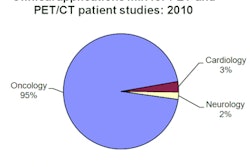After 16 months of research, the Institute of Medicine (IOM) has released a report that concludes the U.S. Food and Drug Administration's (FDA) 510(k) program "lacks the statutory basis to make a reliable premarket screen for safety and effectiveness of class II medical devices."
The study, which was conducted at the FDA's request and released on July 29, also found that the 510(k) clearance process "is not intended to evaluate the safety and effectiveness of medical devices with some exceptions," and that the process cannot ensure product safety and efficacy as long as the standard for clearance is based on previously cleared devices.
Rather than continuing to modify the 35-year-old 510(k) process, the IOM recommended that resources be invested in developing an integrated premarket and postmarket regulatory framework that provides a "reasonable assurance" of safety and effectiveness throughout the device life cycle.
Reallocate resources
"We do direct the FDA and Congress not to waste current finite resources ... on trying to save what we concluded was an unfixable system, " said Dr. David Challoner, chair of the Committee on the Public Health Effectiveness of the FDA 510(k) Clearance Process, during the release of the report today. "Instead, use those resources reallocated wisely to ensure a certain set of short-term and long-term benefits to the agency, the public, and the industry."
The IOM report also recommended that the FDA take the following action:
- Develop and implement a comprehensive strategy to collect, analyze, and act upon medical device postmarket performance information.
- Review its postmarket regulatory processes to identify existing limitations on medical device use and determine how the limitations can be addressed.
- Develop and implement a program of continuous quality improvement to track regulatory decisions on medical devices, identify potential process improvements in the medical device regulatory framework, and address emerging issues that affect decision-making.
- Assess how its regulatory process for class II devices helps or hinders innovation in the medical device industry.
- Develop procedures to ensure the safety and effectiveness of software used in devices, software used as devices, and software used as a tool in producing devices.
Among the short-term benefits of such actions, Challoner said, would be that a "quality assurance program agency-wide could begin to assure the industry that transparency, clarity, and predictability in agency decisions would be more reliable and, therefore, less costly to industry in bringing their products to market."
For the long-term, the committee recommended future efforts should be focused on the systems necessary to gather data needed to design a new regulatory framework for Class II devices that had safety and efficacy for the public's health as one of its clear outcomes and goals.
FDA reaction
In response, the FDA today announced that it will take public comments on the IOM report on the 510(k) program.
In a written statement, Dr. Jeffrey Shuren, director of the FDA's Center for Devices and Radiological Health, said the agency "believes that the 510(k) process should not be eliminated, but we are open to additional proposals and approaches for continued improvement of our device review programs."
Shuren also said many of the IOM findings parallel changes already under way at the FDA to improve device regulation. "These actions, plus a sufficiently funded device review program, will contribute to a stronger program," he added.
Industry view
The Medical Imaging and Technology Alliance (MITA) is one of several organizations working with the FDA to improve the device clearance process.
"It is very clear that the 510(k) program is extraordinarily safe and moves innovative products to market in a timely manner, despite some of the challenges that the agency faced over the last several years," Dave Fisher, MITA executive director, told AuntMinnie.com. "A comprehensive rewrite of the program is not really necessary."
"I am not arguing that the FDA's performance is an A-plus, but our view is that the basics of the 510(k) program itself are about right," he added. "Of course, they could be tweaked, but a comprehensive rewrite is not necessary."



















